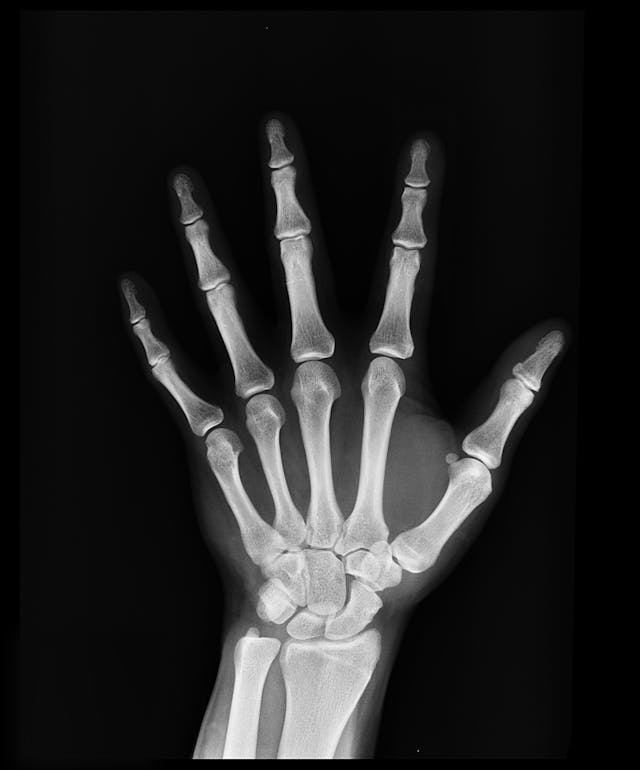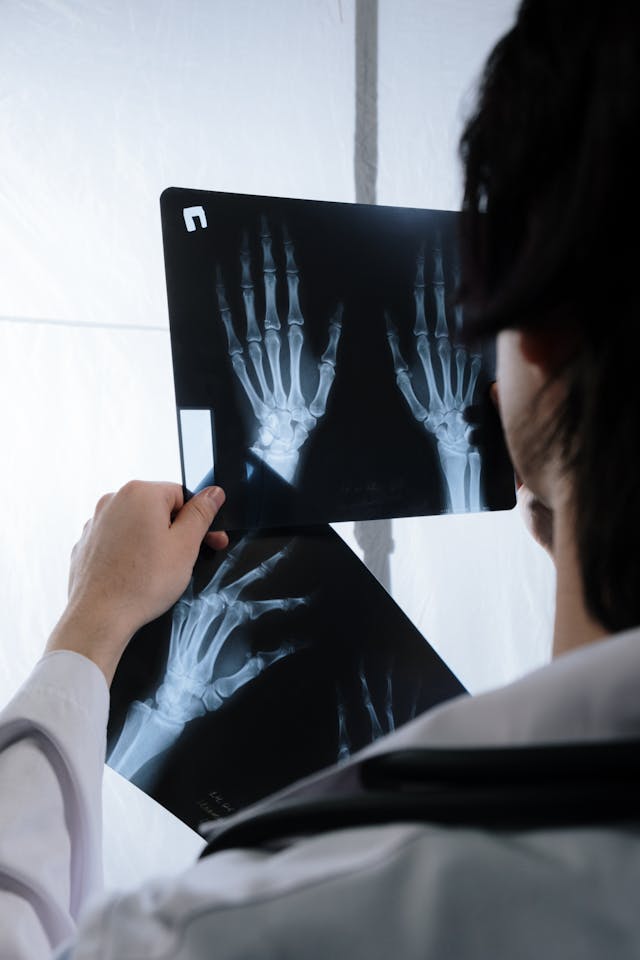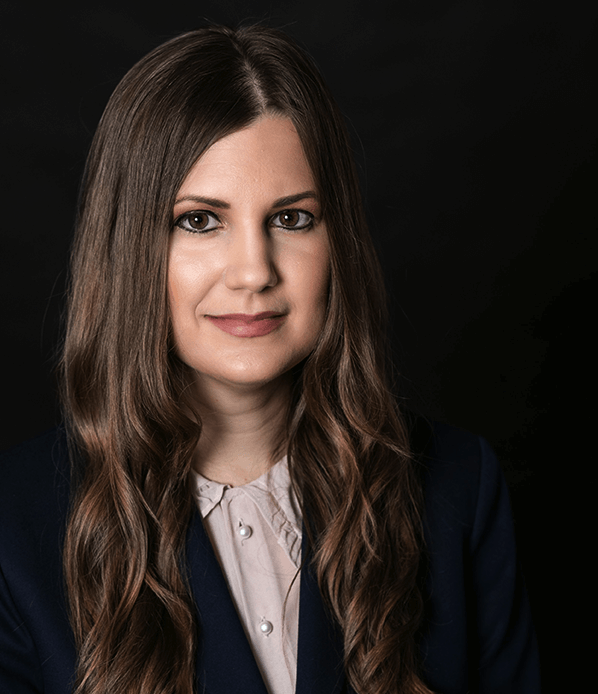
Trusted Scoliosis Disability Attorneys Fighting for Your Benefits
Scoliosis is an abnormal curvature of the spine. Instead of running in a straight line down the back from the neck, the spine curves to the side. The result can be dramatic changes in posture.
Approximately seven million people in this country live with scoliosis, which typically starts in childhood and worsens over time. Back pain and breathing difficulties can develop in people who have scoliosis.
The effects of the disorder may become severe and limit a person’s ability to engage in activities, including those related to working and earning a living. Scoliosis disability benefits through the Social Security Disability Insurance and Supplemental Security Income programs could be available through the Social Security Administration, provided you meet eligibility requirements.
Rely on the scoliosis disability attorneys at the GCC Law Firm for insightful advice and skillful representation to guide you through a complex and frustrating claims process. Put our experience and knowledge to work for you when applying for Social Security for scoliosis.
Scoliosis: Symptoms, Diagnosis, and Treatment Options
The curvature of the spine associated with scoliosis may develop and remain stable over time in some people. However, it can also worsen with time and require treatment. Several types of scoliosis exist, including:
- Idiopathic scoliosis: This type of scoliosis is the most common, affecting approximately 80-90% of people with the condition.
- Congenital scoliosis: The curvature of the spine results from spine abnormalities existing at birth.
- Neuromuscular scoliosis: This condition typically occurs in individuals with other medical conditions that affect muscles or nerves, such as cerebral palsy or a spinal cord injury.
- Degenerative scoliosis: Typically seen in adults aged 50 and older, this condition develops due to degenerative changes in the spine.
Not all individuals with scoliosis experience symptoms depending on the severity of the condition. A person with mild scoliosis may experience few or no symptoms, while those with more severe conditions may experience back pain and breathing difficulties.
A person with scoliosis may have the following physical signs:
- Spine curvature
- A shoulder blade appearing more prominent than the other
- One side of the ribcage protruding more than the other
- Head not centered over the pelvis
- One hip or shoulder higher than the other
- Loosely hanging arm on one side of the body
A person may have difficulty expanding the chest, which impairs the ability to breathe.
Medical professionals diagnose scoliosis by taking note of a patient’s medical history before performing a physical examination that may include diagnostic tests, such as X-rays, CT scans, or MRIs. The X-ray is used to determine the angle of sideways curvature of the spine, known as the Cobb angle. A diagnosis that a patient has scoliosis is made when the Cobb angle exceeds 10 degrees.
A person’s age and the type and severity of scoliosis are factors in determining the treatment a healthcare provider recommends. The purpose of treatment is generally to reduce the degree of curvature of the spine, prevent further progression of the curvature, and provide relief from symptoms, such as pain. Treatment options range from monitoring the spine in cases of mild scoliosis to physical therapy to improve range of motion and medication for pain.
Spinal fusion and other surgical procedures may be recommended to prevent further progression of the spinal curve. Surgeons may perform spinal decompression to relieve nerve pressure and decrease pain and discomfort.
The physical limitations, pain, and discomfort of scoliosis may significantly affect a person’s ability to perform work-related activities. Individuals who cannot continue working because of the progression of their medical condition rely on GCC Law attorneys to pursue disability claims for scoliosis through SSDI and SSI.
Qualifying For Disability Benefits When Scoliosis Prevents You From Working
If you have been diagnosed with scoliosis that prevents you from standing, sitting, or doing other activities you need to work, you may be eligible for disability benefits through the SSDI and SSI programs. SSDI provides benefits to individuals with work histories at jobs or through self-employment, where Social Security taxes or self-employment taxes have been paid on their earnings or income.
SSI is a needs-based program that does not require a work history. Instead, it has strict limitations on income and resources. If you meet these non-medical requirements, qualifying for scoliosis disability still requires evidence of a disability that prevents you from working.
Social Security uses a definition as the standard to determine whether you are disabled. It requires medical evidence that you cannot do substantial gainful work activity because of a physical or mental impairment that has lasted or is expected to last for at least 12 months or is expected to result in death.
The application review process uses a listing of impairments compiled by the Social Security Administration of those medical conditions severe enough to meet the disability standard. Although scoliosis is not a listed impairment, it will be evaluated to determine whether your condition is the functional equivalent of a listing, such as listing 1.15, disorders of the spine resulting in compromise of a nerve root.
Being unable to qualify using the listing of impairments does not end your chance of qualifying for scoliosis disability. Your application continues through the review process to determine whether the limitations of your medical condition prevent you from performing work that you have done in the past or adjusting to another type of work available in the national or regional economy.
The disability attorneys at GCC Law put in the time and effort before the submission of your application for disability benefits to ensure the availability of documentation to prove disability claims for scoliosis.


Speaking With A Scoliosis Disability Attorney At GCC Law Could Change Your Life By Improving Your Chances Of Approval For Disability Benefits
When scoliosis disability prevents you from doing the work needed to support yourself and your family, scoliosis disability benefits could make a difference in your life. The advice and representation provided by the scoliosis disability attorneys at GCC Law could improve your chances of getting the disability assistance you need. Learn more by contacting us today for a complimentary consultation and a review of your claim.
Medical Conditions Listed for Disability Benefits:

Call Our Illinois scoliosis Disability Lawyers Today
At GCC Law Firm, our Illinois scoliosis disability attorneys provide personalized, solutions-driven legal advocacy for clients. If your SSDI or SSI claim has been denied in Illinois, we can help. Contact us to schedule a free and completely confidential initial consultation, please contact our law firm today.
Call (479) 340-0002.
